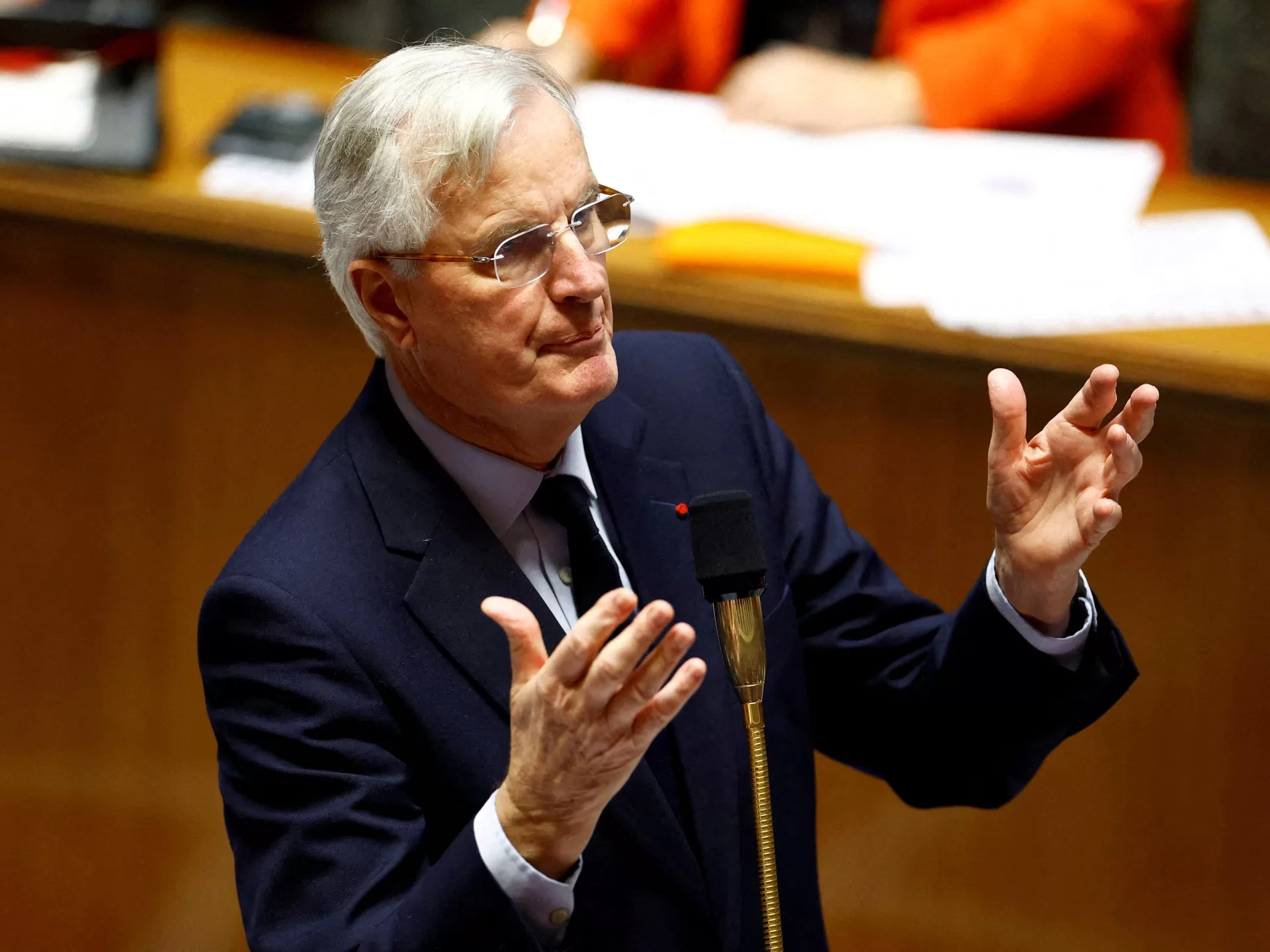The government of Prime Minister Michel Barnier is likely to collapse with parties from the right and left rallying against it.
The government of French Prime Minister Michel Barnier is facing collapse after right- and left-wing parties have promised to put forward a no-confidence vote against it amid a budget dispute.
France’s far-right leader Marine Le Pen said on Monday that her party, the National Rally (RN), tabled a no-confidence motion against Barnier after he moved to force through budget measures without parliamentary approval.
Left-wing politicians have also said they will introduce a similar motion. The left-wing coalition and RN have enough votes to topple the prime minister.
Early on Monday, Barnier said he would scrap electricity price hikes and reduce healthcare coverage for undocumented migrants, caving in to demands from the far right. The budget vote had been scheduled in the lower house of France’s Parliament, the National Assembly, later in the day.
The prime minister’s minority government, backed by a fragile coalition of conservative and centrist lawmakers, did not have the votes needed to pass its legislation outright without the RN’s support.
His concession was a last-ditch effort to keep the government’s financial plan on track and remain in office. But Le Pen said her party’s “demands on the budget were not met” and accused Barnier of failing to listen to political groups opposed to the bill.
Barnier then activated a provision of the French Constitution – Article 49.3 – to push his budget through the National Assembly without a vote.
He defended his decision and called on French lawmakers not to plunge the country into crisis. “We have arrived at a moment of truth. … [We must] decide if our country gets a responsible, indispensable budget or if we step into uncharted territory,” he said.
A vote of no confidence is now expected as early as Wednesday. If Barnier’s government is voted out, it would be the first time French lawmakers have taken such a step since 1958. It would also make him the shortest-serving prime minister during that period.
Barnier was hand-picked by President Emmanuel Macron in September to try to forge a consensus in France’s fractured political landscape. His appointment was an attempt to end two months of limbo after snap legislative elections delivered a hung parliament.
New Popular Front, a coalition of left-wing parties, emerged as the largest party in the parliament after the elections. The left had partnered with Macron to prevent Le Pen’s RN from winning, but it was incensed at the appointment of Barnier, a right-wing politician.
Macron, whose term runs until the spring of 2027, will remain as president even if Barnier and his cabinet fall. But Macron, whose powers were weakened after July’s snap general elections, will need to appoint a new prime minister.
Macron could ask political parties to seek a new coalition government or appoint a technocratic government until new legislative elections can be held this summer. No general election can take place within 12 months of the previous vote.
In recent weeks, brinkmanship over budget measures has roiled French markets, briefly pushing Paris’s borrowing costs above Greece’s and denting France’s stock market. Last week, Barnier warned of a “storm” in financial markets if he is dismissed from power.
